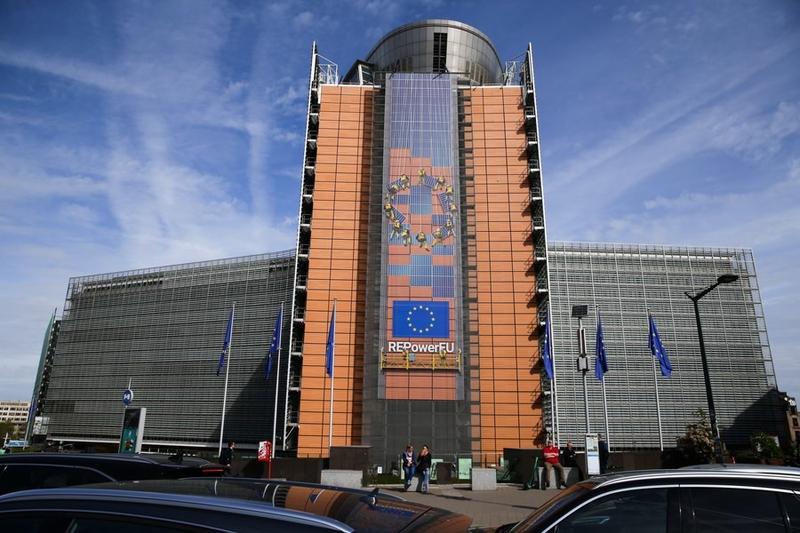 People rest outside the European Commission building during the Open Day of the European institutions in Brussels, Belgium, May 6, 2023. (PHOTO / XINHUA)
People rest outside the European Commission building during the Open Day of the European institutions in Brussels, Belgium, May 6, 2023. (PHOTO / XINHUA)
BRUSSELS - The European Union's economy has avoided a recession and is now on a path of moderate growth in 2023 and 2024, Paolo Gentiloni, European commissioner for economy, said in Brussels on Monday.
"The EU economy is in better shape than we projected last autumn," he said as he presented the European Commission's Spring Economic Forecast. "We avoided a recession and are set for moderate growth this year and next. Yet risks are too plentiful for comfort: we must remain vigilant."
The recession was avoided due to a combination of factors, including lower energy prices, abating supply constraints and a strong labor market, according to the European Commission
The recession was avoided due to a combination of factors, including lower energy prices, abating supply constraints and a strong labor market, according to the Commission.
The EU's economy is now projected to grow by 1 percent in 2023 and by 1.7 percent in 2024, up from 0.8 percent and 1.6 percent, respectively, projected in winter. The eurozone's gross domestic product is now expected to grow by 1.1 percent this year and by 1.6 percent in 2024.
READ MORE: EU backs world's first comprehensive crypto rules
However, the eurozone's inflation forecast has been reviewed upwards to 5.8 percent in 2023 and 2.8 percent next year. This is due to the persistence of core inflation, which could restrain the purchasing power of households and lead to a stronger monetary policy response, according to the Commission.
Other risks include new episodes of financial stress, an expansionary fiscal policy and uncertainties stemming from wider geopolitical tensions.
ALSO READ: EU countries approve reform of bloc's carbon market
As inflation remains high, financing conditions are set to tighten further. Though the European Central Bank and other EU central banks are expected to be nearing the end of the interest rate hiking cycle, the recent turbulence in the financial sector is likely to add pressure to the cost and ease of accessing credit, slowing down investment growth and hitting residential investment in particular.


